How to visit the Standedge Tunnel, the longest, highest, deepest canal tunnel in the UK, and a great day out from Manchester and Leeds.
One of my favourite days out from where I live near Manchester is taking a trip to Marsden, a small town in the Pennines, close to the border between Lancashire and Yorkshire. Marsden is a lovely place to visit, with great pubs, fantastic walks on the moors and fun festivals, but the biggest attraction in Marsden is the Standedge Tunnels.
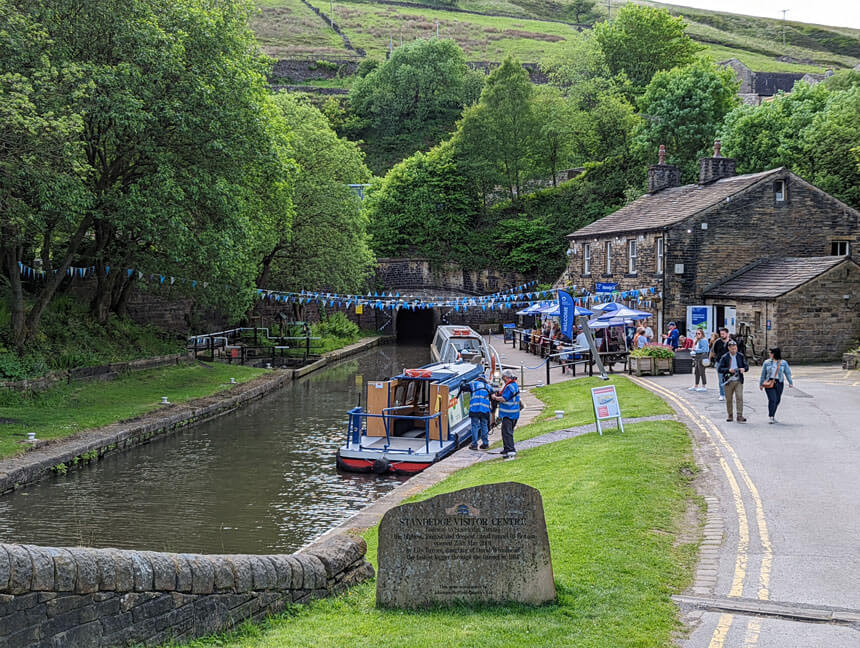
About the Standedge Tunnels
Four Standedge Tunnels bore their way through the hill that divides Lancashire and Yorkshire. There are three railway tunnels, one of which is still in use today, but the oldest, and most interesting tunnel, is the Standedge canal tunnel.
If you visit the Standedge Tunnels in Marsden, you can take a boat ride into the historic tunnel, visit the visitor centre and museum, enjoy a beautiful walk along the canal and explore Marsden village.
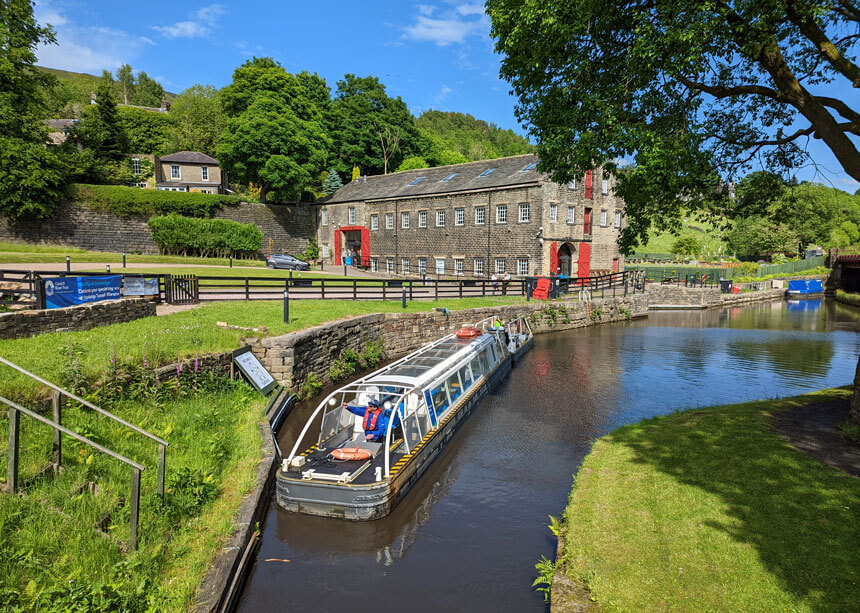
The Standedge Canal Tunnel is the:
- longest (5.2 kilometres, or 3.2 miles)
- highest (196 metres above sea level)
- deepest (194 metres underground)
canal tunnel in the UK. The Standedge canal tunnel starts just west of Marsden village at Tunnel End and emerges on the other side of the hill in Diggle, one of the Saddleworth villages in Greater Manchester.
The canal tunnel is part of the Huddersfield Narrow Canal, which starts in Huddersfield and travels up the Colne Valley in West Yorkshire, passing through the villages of Slaithwaite (pronounced “Slawit”) and Marsden, before reaching the hill at Standedge.
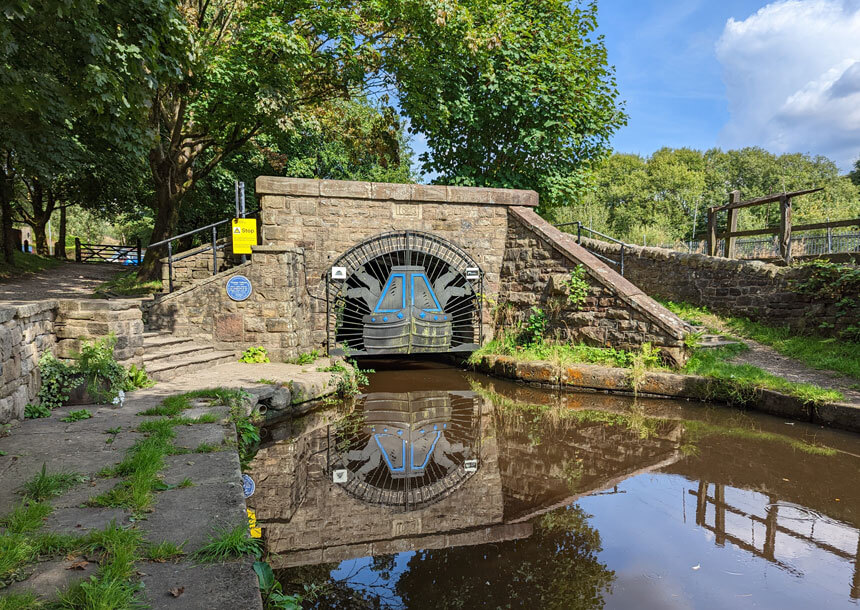
Once through the Standedge tunnel, the canal descends through Saddleworth, Mossley and Stalybridge before it joins the Ashton Canal at Ashton-under-Lyne, just under 20 miles from where it started.
History of the canal tunnel
Construction of the Huddersfield Narrow Canal began in 1794, but building the Standedge Tunnel proved more difficult than expected. The great engineer Thomas Telford was brought on board in 1807 to draw up a new plan, and following his guidance, the tunnel finally opened in 1811.
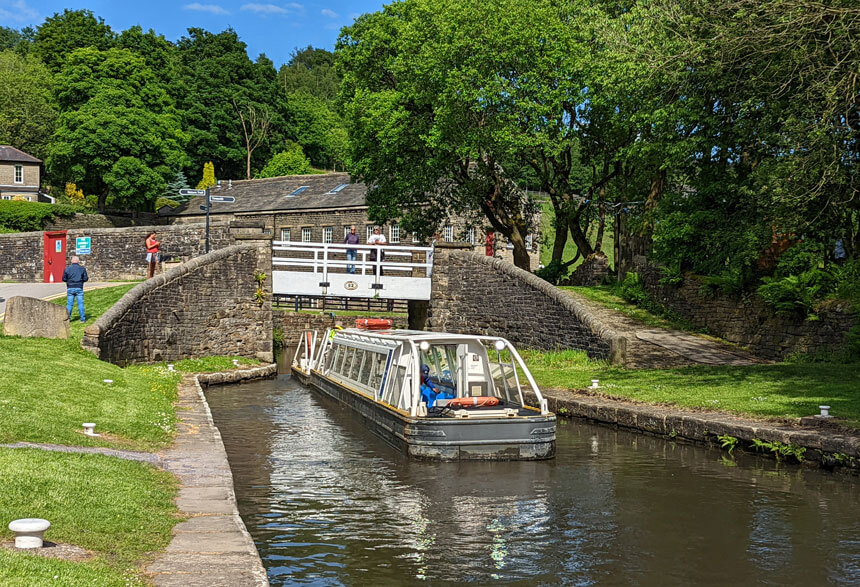
As you might expect from its name, the Huddersfield Narrow Canal is narrower than most other UK canals, and the Standedge Tunnel is even narrower – just wide enough for one narrowboat.
To save money, the company decided not to make space for a towpath, so instead of barges being towed by horses through the tunnel, they had to be pushed along by “leggers” – men who lay on top of the cargo and pushed the boat along, using the force of their legs against the walls of the tunnel. Legging a fully-loaded boat through the tunnel took an exhausting 3 hours. Meanwhile, the horses would be walked over the hill to meet the barge at the other end.
The long climb and descent meant that, as well as the spectacular Standedge Tunnel, the canal needed 74 locks. The effort was worthwhile though; there were textile mills all along the route, all needing raw materials to be brought in and finished products to be taken away.
The canal was bought by their new competitor, the Huddersfield and Manchester Railway in 1846. The railway also needed to bore through the great hill at Standedge, but the job was made much easier by the presence of the canal tunnel, which could be used for access and to take away rubble. A second railway tunnel opened in 1871, followed by a third in 1894, which is the one which is still in use today.
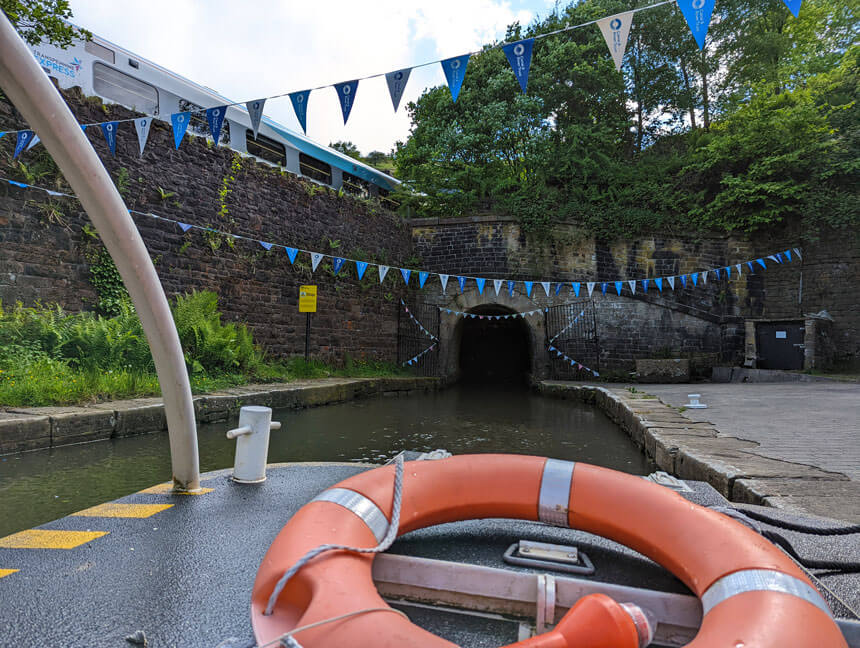
The canals found it difficult to compete with the faster railways and later, road traffic. The final commercial boat passed through in 1921, and the tunnel closed in 1944. The gates at either end were locked shut, and the tunnel, and the entire canal route fell into disrepair.
Local people hadn’t forgotten the canal though, and after over 20 years of campaigning and restoration by the Huddersfield Canal Society, the canal, and the Standedge Tunnel, reopened in 2001.
Things to do at Standedge Tunnel
Take a boat trip into Standedge Canal Tunnel
The main attraction at Standedge Tunnel is the boat trips into the canal tunnel, which are available on Fridays and Saturdays. Check their Facebook page for details of extra trips during school holidays.
The boat trips last around 30 minutes and take you around 500 metres into the tunnel. The boat is a specially-built “Standedge Class” narrowboat, with seating inside, and open areas at either end. If you stand in the open areas you’ll need to wear a hard hat, but it’s definitely worth going outside for at least part of the journey as it’s really atmospheric.
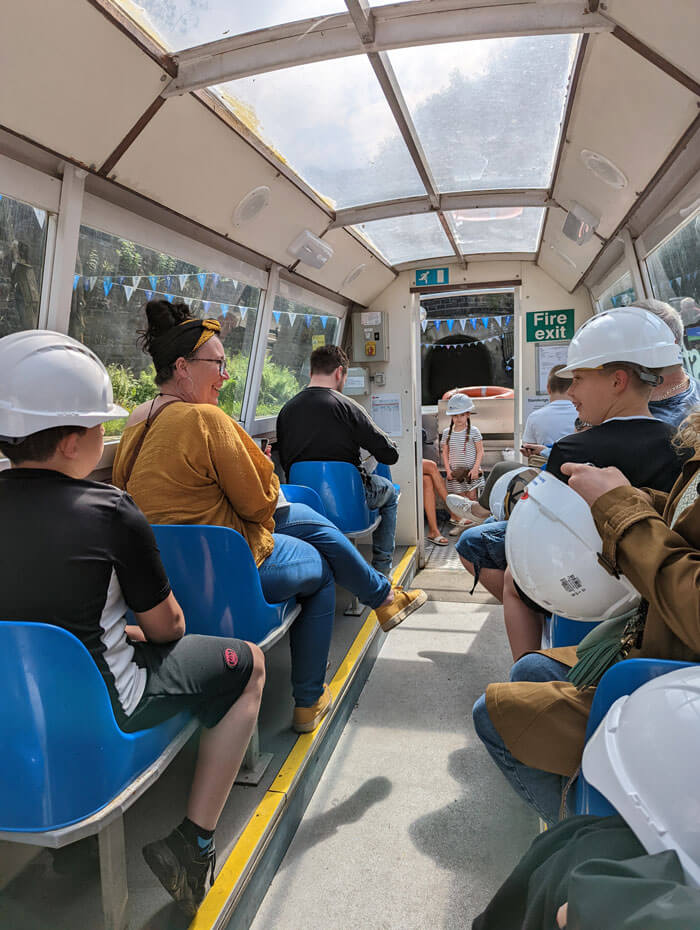
During the boat trip, the skipper will tell you about the history of the tunnel and tell you stories about how it was built. You’ll be able to see for yourself how narrow it is and get an idea of how tough it must have been for the navvies who built it.
Although you’re with a group of people, there’s a real sense of isolation as your phone signal dies and the light of the tunnel portal disappears behind you. At one point the skipper turns off the boat lights and you’re plunged into the pitch black for a few moments – an unnerving experience! If you are particularly claustrophobic or scared of the dark then the boat trip may not be for you, however the skippers do stress that if at any time you want them to go back they will.
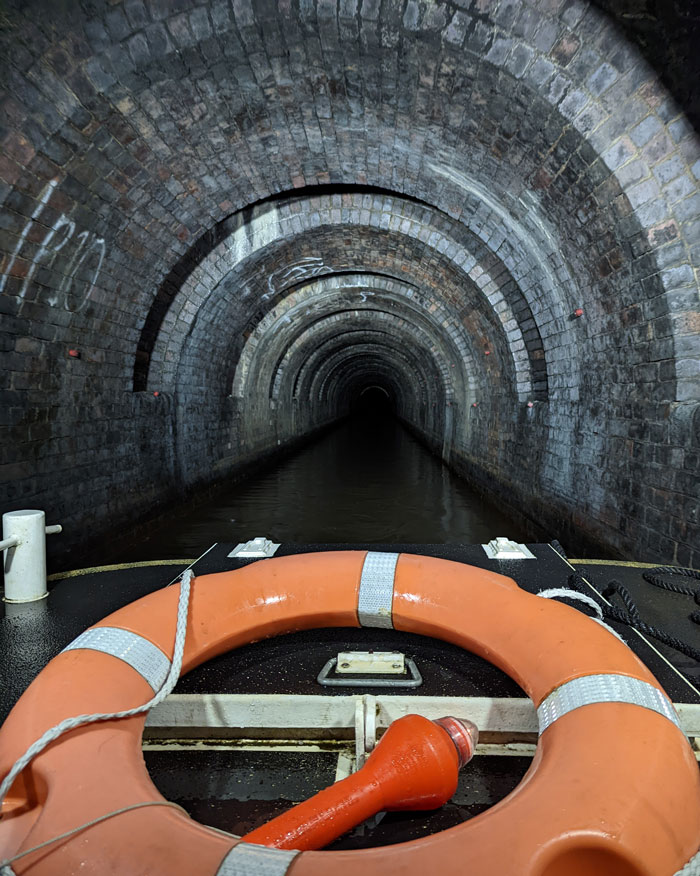
You can occasionally glimpse trains rushing past, a reminder that the canal tunnel is not the only route through Standedge. And while you’re in the tunnel, there’s a chance you could be joined by an extra visitor. The tunnel is reputed to be haunted by a mysterious robed figure; perhaps one of the navvies who died building it. There have also been reports of strange lights and unexplained sounds, and it’s all pretty believable when you’re sat in the dark, nearly 200 metres underground.
To book a trip into the tunnel, visit the Canal and River Trust website, where you can book online. You may be able to buy tickets on the day but they are limited. Tickets cost £8 for adults and £6 for children.
Go to the visitor centre
The old canal warehouse has been turned into an interesting museum about the building of the canal and the Standedge Canal Tunnel. There are lots of displays and information boards, along with artefacts on loan from the two National Waterways Museums in Ellesmere Port and Gloucester.
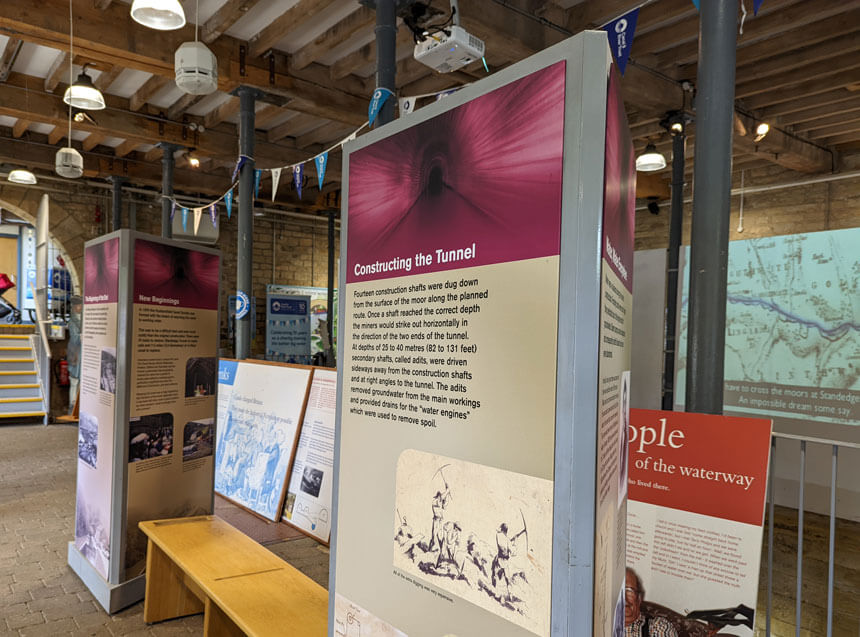
The visitor centre is also a popular wedding venue (who wouldn’t want to arrive at their wedding by narrowboat?) so if you’re planning to visit and particularly want to see the visitor centre, please call in advance to check that the visitor centre will be open.
Visit the play area and wildlife garden
If you’re visiting the tunnel with children, you should check out the play area and wildlife trail. The boat trip is also family friendly as long as your children aren’t too scared of the dark.
Have a cup of tea and a cake in the café
The Watersedge Cafe is in another historic building, right by the entrance to the tunnel. There are tables inside and picnic tables outside, so it’s a lovely place to wait for your boat trip into the Standedge Tunnel if you visit on a sunny day.
How to get to Standedge Tunnel
The Standedge Tunnel Visitor Centre is half a mile from Marsden railway station. You can catch a train to Marsden from either Manchester or Leeds, or there’s a car park at the station. There are a (very) few spaces for people with disabilities at the visitor centre.
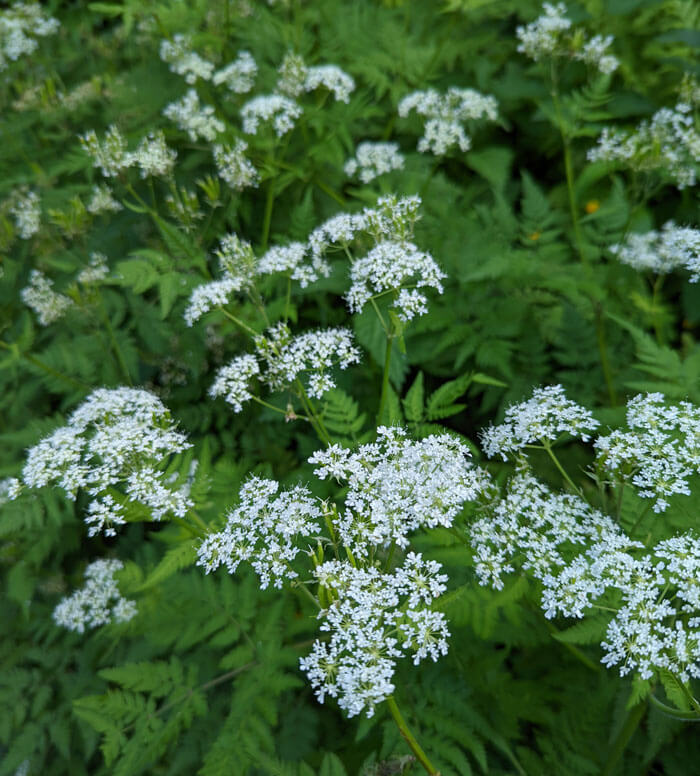
The walk along the canal to the tunnel is really pretty; you’ll often see ducklings in the spring and it’s lined with woodland flowers in the summer. If you don’t fancy walking, Huddersfield Canal Trust run a shuttle boat service at weekends through the spring, summer and early autumn – check on their Facebook page for times.
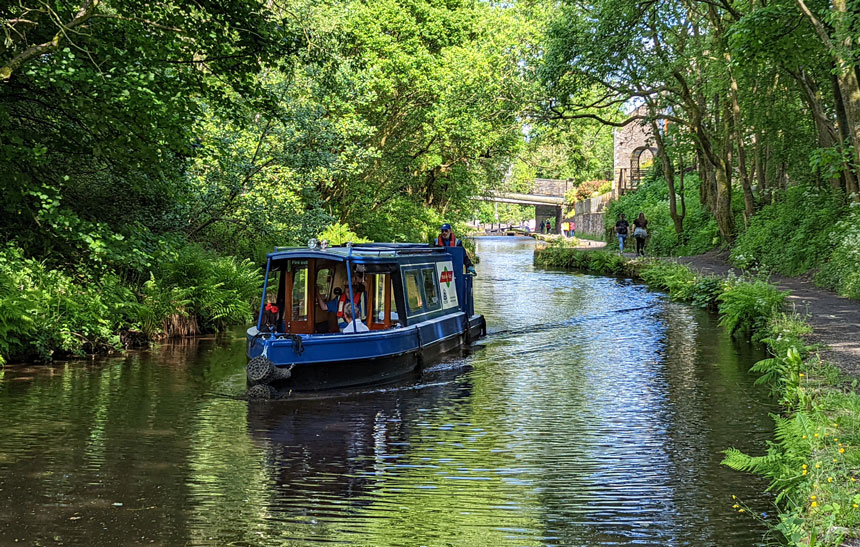
More things to do in Marsden
Beautiful moorland walks
Marsden is surrounded by epic moorland scenery, much of it managed by the National Trust and full of beautiful walking trails. The moorland is designated as a Site of Special Scientific Interest as it’s the nesting site for rare birds, including the twite, one of Britain’s most threatened birds. If you’re lucky, you might also see mountain hares, rare butterflies and moths or lizards.
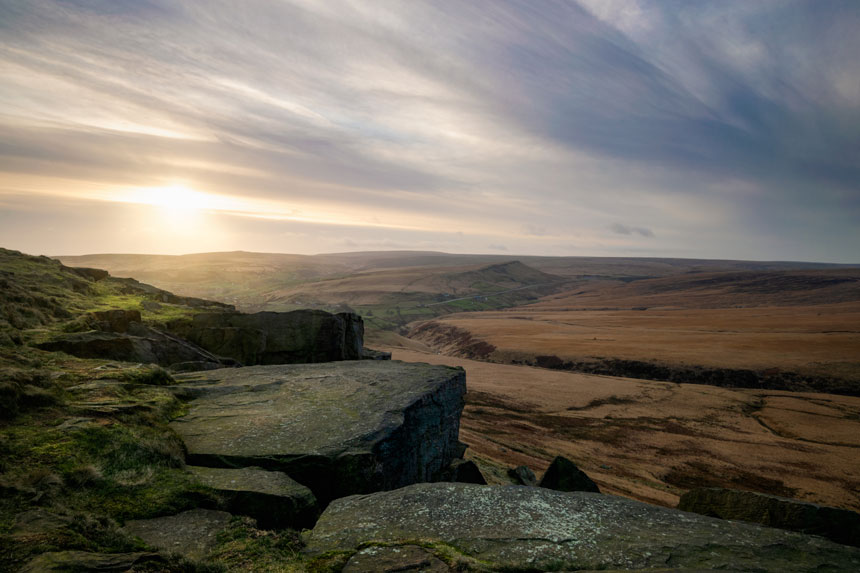
The National Trust offer guided walks on the moorland, along with a number of self-guided walking routes, taking in the best of Marsden’s scenery and heritage. Most walks start from the National Trust and Standedge Tunnel car park at Marsden Station.
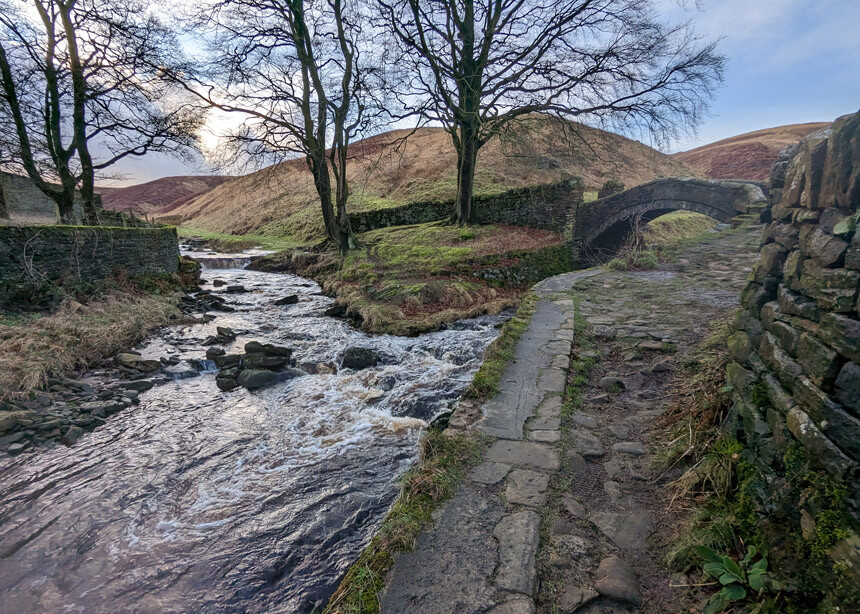
One of my favourite walks near Marsden and Standedge is the gentle 3-mile walk to the old Eastergate packhorse bridge (also known as Close Gate bridge). The walk takes you past Tunnel End Reservoir, which was built to supply water to the highest parts of the Huddersfield Narrow Canal, Hey Green electricity generator, which provided the first electricity in the area to a nearby house, and Horseshoe waterfall. Look out for the adorable bird box on the row of converted stables on Waters Road!
Eat and drink
Marsden’s pretty village centre is full of nice bars and cafes, such as the Riverhead Brewery Tap, which is right by the river in the centre of Marsden and has a great range of beers, some of which are brewed on the premises. Arcade is right across the road and is great for brunch.
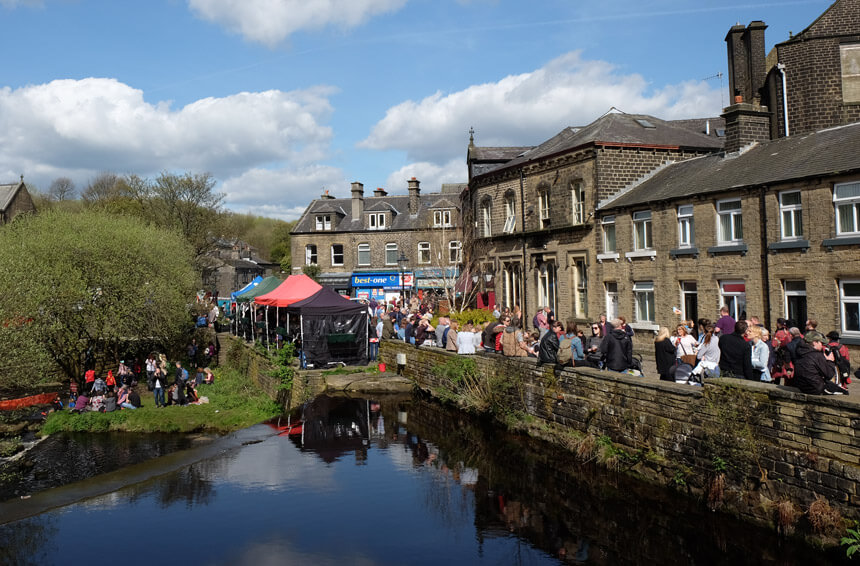
The Marsden Cuckoo Festival
The best day to visit Marsden is when the Cuckoo Festival is on. The Cuckoo Festival happens each year in late April and celebrates the arrival of spring after a long, cold winter.
A local legend tells how the villagers spotted a cuckoo, and built a tower around it so it couldn’t fly away – unfortunately they didn’t put a roof on it and the cuckoo simply flew out of the top.
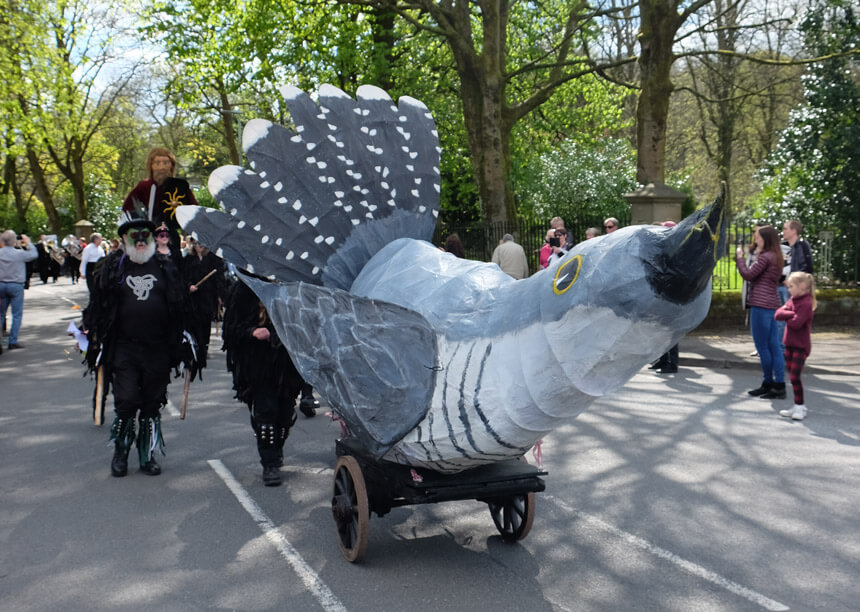
The centrepiece of the Cuckoo Festival is the Cuckoo Walk, when a large puppet of a cuckoo is paraded around the streets of Marsden, followed by a huge puppet of a giant, a brass band, maypole dancers and villagers in fancy dress. It’s all delightfully Wicker Man, just with a duck race instead of the whole burning thing.
In 2025 the Cuckoo Walk and folk night will happen on Friday 25 April, with the rest of the festivities on Saturday 26 April.
Will you visit Marsden and the Standedge Tunnels?
Related posts
If you found this post interesting, you might like these other ideas for days out from Manchester:
- Visiting the Lancashire Panopticons: fascinating public art with a view
- Visiting dreamy Wycoller, the gorgeous Lancashire hamlet with a fairy trail and a Brontë connection
- Why you should make Saltaire your next day out from Manchester or Leeds
- Visiting Haworth and the Brontë Parsonage Museum, home of the famous Brontë sisters
- The UK’s best canal boat trips
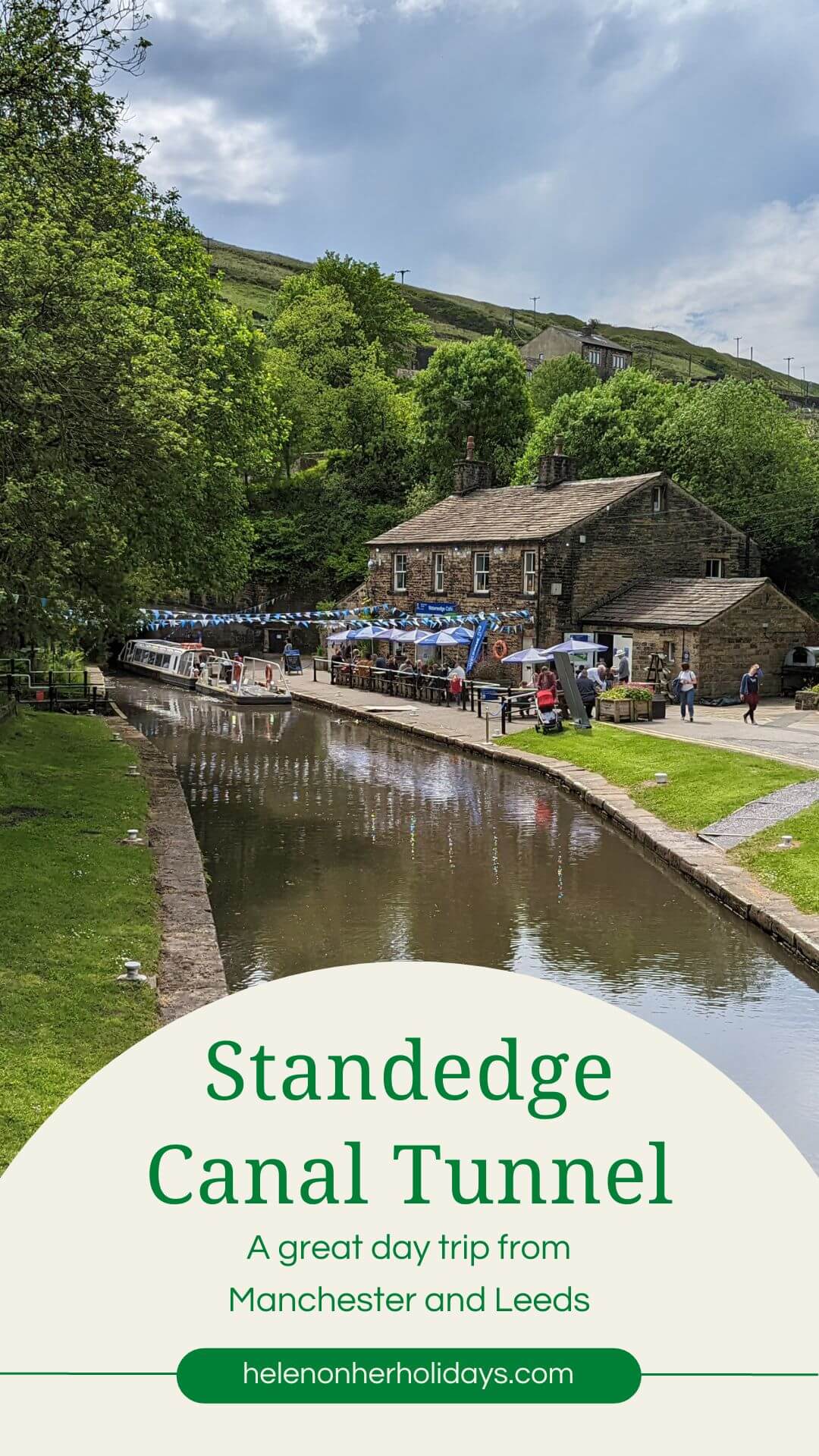

Great post! I’m planning to visit Manchester later this year, so I’ve loved reading your post and learning more about places to visit in the area. I’ll definitely be saving this post for when I’m planning my trip in more detail.
Thank you 🙂 It’s really easy to get to Marsden and Standedge from Manchester so if you get a nice day I really recommend heading out to the hills.
What an interesting part of Manchester. I wish I had found out about it when I was there.
It’s actually just over the border in Yorkshire (or a long way over the border, depends who you talk to!) but it’s a really easy day trip from Manchester.